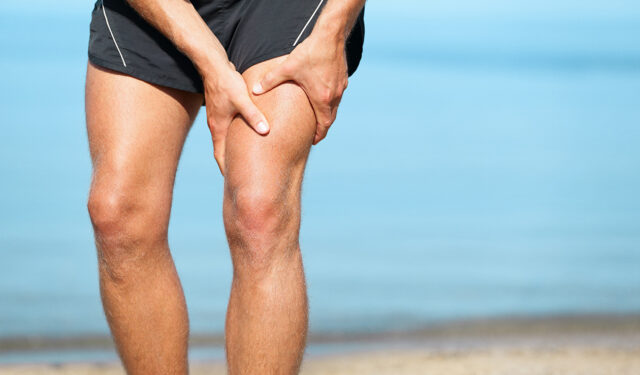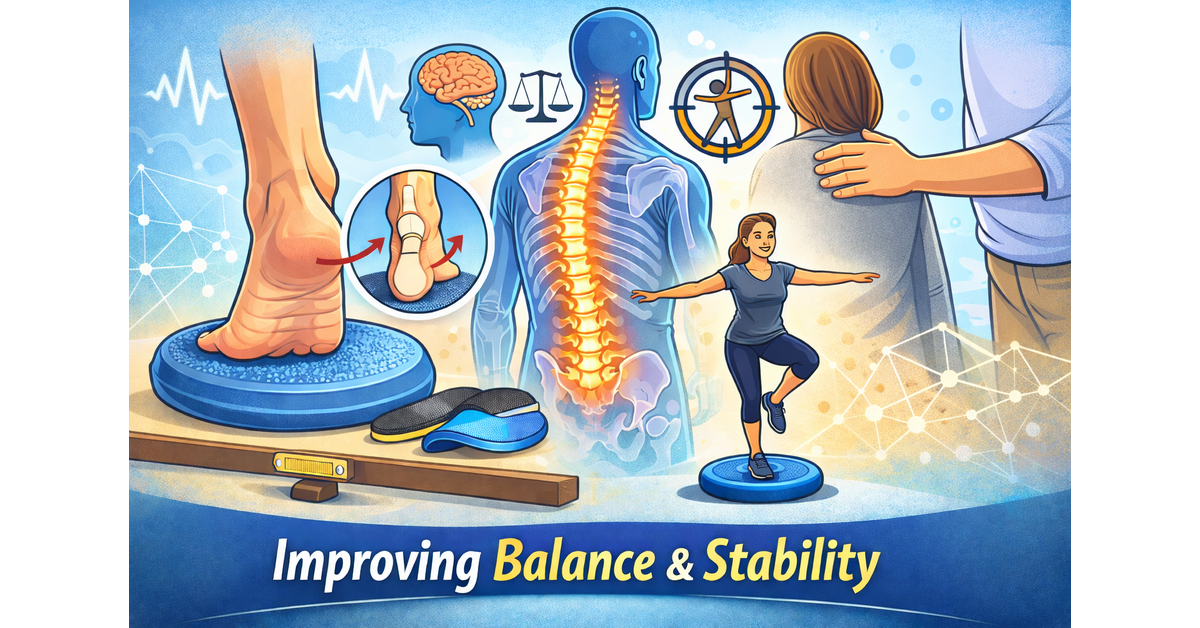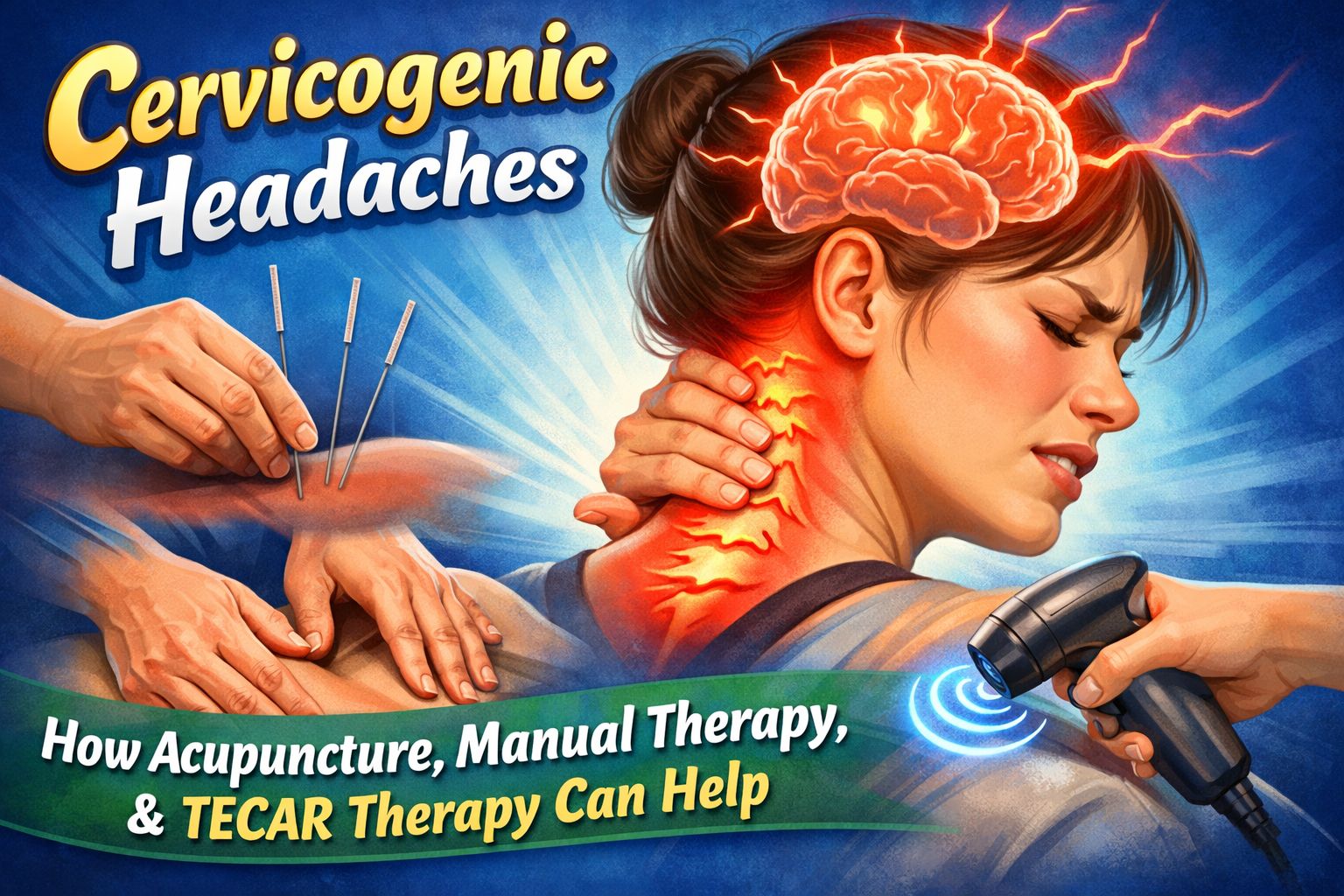Where you get the cramp can help pinpoint the cause.
Common Fatigue-Related Cramp Areas:
Calf muscles
Feet
Back of the thighs (hamstrings)
These are especially common in athletes after prolonged activity. You’ve probably seen footballers lying on the pitch during overtime with cramps—usually caused by a mix of fatigue and dehydration.
Nerve-Related Cramp Areas:
Forearm and hand: Often caused by a neck disc injury.
Calf and foot: May be linked to a lower back disc issue.
Back and surrounding muscles: Local joint sprains often lead to cramps in the paraspinal muscles (muscles next to the spine) and nearby areas like the shoulders or hips.
Many of these cases are mistakenly dismissed as “just muscle spasms,” but they may stem from deeper joint problems like facet joint sprains.
Nighttime Leg Cramps
Cramps in the calves and feet during sleep are very common, especially as we age. Why?
When lying down, your foot naturally points downward, shortening the calf muscle. A shortened, tired, or dehydrated muscle is more likely to cramp.
Quick fix: Stretch before bed and stay hydrated throughout the day.
Salt and Cramps: Is There a Connection?
Many people think salt deficiency causes cramps. In reality, you lose more fluid than salt when you sweat. Unless you have kidney problems, your body regulates salt levels very efficiently.
Avoid self-medicating with salt unless your doctor confirms it’s needed.
Can Muscle Imbalance Cause Cramps?
Yes. Muscle imbalance is a common trigger. Here’s how it works:
If one muscle is weak, the opposing or supporting muscle has to work harder.
Over time, that stronger muscle gets tired and spasms.
Example: If your glutes (buttocks) are weak, your hamstrings may cramp during exercises like bridges.
Correcting muscle imbalances through targeted chiropractic care and proper exercises can prevent these issues.
What Is Secondary Cramp?
These cramps are caused by underlying medical conditions or medications. They include:
Neurological disorders (e.g., Multiple Sclerosis, motor neurone disease)
Liver disease (e.g., cirrhosis)
Bacterial infections (e.g., tetanus)
Toxins (e.g., lead, mercury)
Electrolyte deficiencies (e.g., low potassium, magnesium, sodium)
Pregnancy (especially in the third trimester)
Medications, including:
Diuretics (for high blood pressure)
Statins and Nicotinic Acid (for high cholesterol)
Raloxifene (for osteoporosis)
Nifedipine (for angina and Raynaud’s)
If you suspect a medication is causing your cramps, talk to your GP before making any changes.
Effective Treatment for Muscle Spasms and Cramps
Paraspinal Muscle Spasm
Often caused by joint sprains in the back. These are best treated by identifying and addressing the underlying issue—not just the symptom. Chiropractic adjustments work well in these cases.
Disc Injuries
Disc-related cramps are more serious. However, it’s usually the inflammation, not the disc size, that causes the pain and spasm. Chiropractic care can still help, especially when combined with other therapies.
Muscle Imbalance
A proper assessment can identify weak or overworked muscles. If a nerve is involved, we need to treat that first. Exercise therapy is more effective once nerve irritation is resolved.
Managing Calf Cramps at Night
These are one of the most common types we see.
Here’s how to manage them:
Stay Hydrated
Drink at least 2 litres of water daily. Coffee and tea don’t count—they’re diuretics and can dehydrate you.
Stretch Before Bed
Try these two calf stretches:
Wall Stretch
Stand with the cramping leg behind you. Lean forward into a wall until you feel the stretch. Hold for 20–30 seconds and repeat 3 times.Step Stretch
Stand on a step with your heels hanging off. Slowly lower your heels to stretch the calves. Hold and repeat 3 times.
For Secondary Cramps
Treating the underlying cause is key. For pregnancy-related cramps, symptoms usually go away after childbirth. Liver-related cramps may need medication like muscle relaxants under medical guidance.
Final Tips and Summary
Drink at least 2 litres of water per day.
Maintain proper carbohydrate intake to avoid muscle fatigue.
Stretch your muscles, not your spine. Stretching the spine (e.g., twisting, bending) often worsens instability and may increase the risk of injury.
If you rely on foam rollers or stretching daily to relieve tight muscles, you may have an underlying issue that needs professional care.
Need Help?
If you’re not sure how to manage your cramps or muscle spasms, contact us at Isis Chiropractic Centres. We’re here to help you feel and move better.




